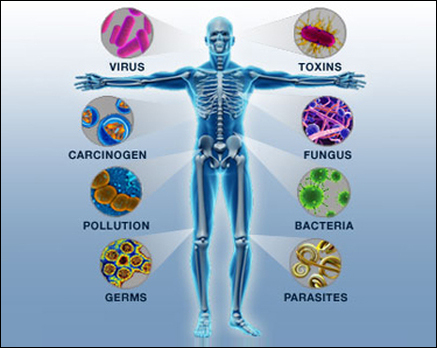
About Autoimmune Disorder
Autoimmune disorder is the disorder in which the immune system, which generally defends the body against the disease, takes healthy cells also as a foreign, as a result immune system attacks the healthy cells. Autoimmune disorder affects the different organs and tissues in the body. There are many types of autoimmune disorder. This disorder may have no symptoms or worsening symptoms. There is no curative therapy, treatment for the autoimmune disorder. This disorder affects the different parts of the body depending on the type of the disorder. There are around 80 or more than those autoimmune disorders.
The following are the common types of autoimmune disorder:
- Rheumatoid arthritis: It is the disorder in which there is an inflammation of the joints and surrounding tissues.
- Pernicious anemia: It is a type of anemia, which is caused when there is an inability of the body to absorb vitamin B12 ultimately decreases in red blood counts.
- Celic sprue disease: In this disease there is a reaction to gluten (wheat, rye and barley) that causes damage to the lining of the small intestine
- Vitiligo: There is a formation of the white patches, there is loss of pigment.
- Scleroderma: This is a connective tissue disease that causes change in skin, blood vessels, muscles and internal organs.
- Psoriasis: It is a skin disease which causes redness and silvery patches on the skin.
- Inflammatory bowel disease: It is a group of inflammatory disease of the colon and small intestine.
- Addison’s disease: It is caused due to deficiency of adrenal gland.
- Hashimoto’s disease: It is the inflammation of the thyroid gland.
- Type 1 diabetes: Destruction of insulin producing cells in the pancreas.
What can be the causes of autoimmune disorders?
Normally, the immune system produces antibodies against the antigens that enables to destroy the harmful substances like bacteria, virus, etc. When having autoimmune disorder, the immune system is not able to distinguish between the healthy tissue and antigen. As the result, the body destroys the healthy tissue.
The causes of the autoimmune disorder are unknown, but few are the trigger factors which are as follows:
- Bacteria
- Virus
- Fungi
- Drugs
- Chemical irritants
- Environmental irritants
- Hereditary
Autoimmune Disorder – According to Ayurveda
Ayurveda is a holistic medicine, which treats the main root cause of the disease. According to this, the autoimmune disorders occurs due to ama (the toxic waste material); whereas ama is caused by the low agni (digestive fire) and low ojas (immunity). So the root cause of the autoimmune disorder is low agni and weak ojas.
What can be the areas which are more often, effected by the autoimmune disorder?
Areas are more often effected by the autoimmune disorder are as follows:
- Blood vessels
- Connective tissues
- Thyroid or pancreas (Endocrine glands)
- Joints
- Muscles
- Skin
- Red blood cells
What can be the symptoms of the autoimmune disorder?
- Fever
- Fatigue
- Joint pain
- Malaise
What can be the examination and test which are helpful to diagnose immune disorder?
- CBC Antinuclear antibody test
- Autoantibody tests
- CRP
- ESR (Erythrocyte sedimentation rate)
- Comprehensive metabolic panel
What is the prognosis of autoimmune disorder?
Most autoimmune disease are chronic, it may be controlled by treatment. When symptoms get worse, it is called flare-up. The outcomes depend on the disease.
What can be the complications of the autoimmune disorder?
Complications depend on the disease. Medicines used to suppress the immune system can cause severe side effects, such as higher risk of infection.
